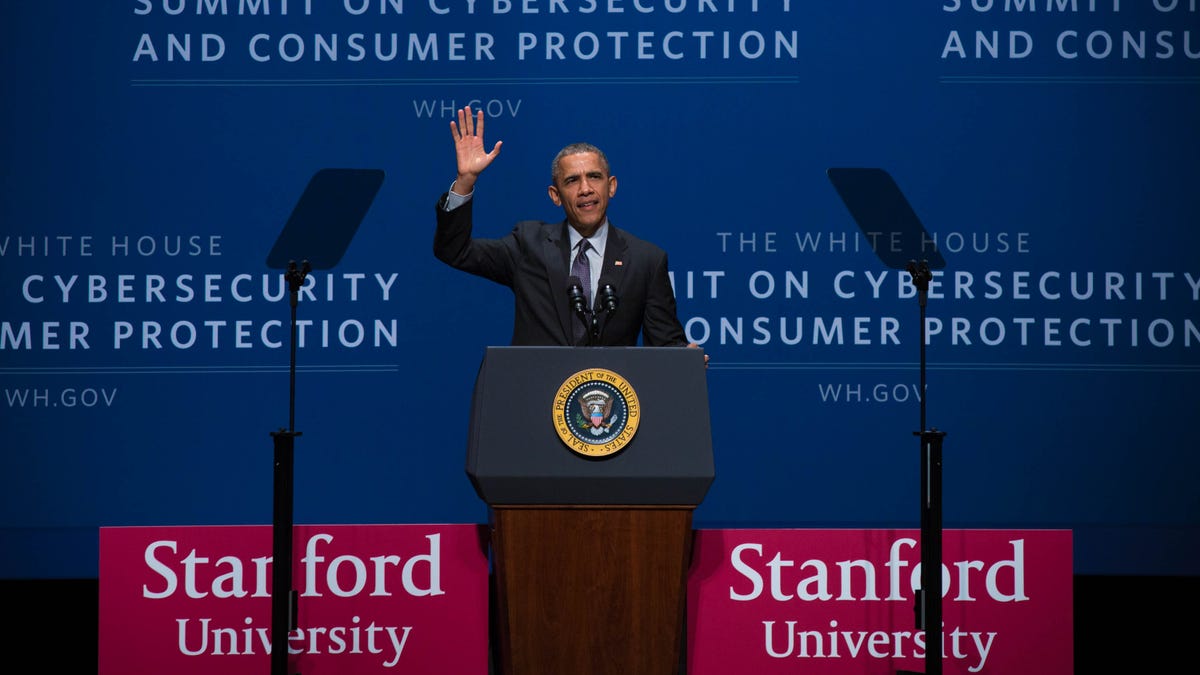Obama: Snowden has to face trial
Asked whether he'll pardon former NSA contractor Edward Snowden, the president doesn't say much.

President Barack Obama speaks at a 2015 cybersecurity event at Stanford University.
President Barack Obama isn't going to talk about whether he'll pardon Edward Snowden.
That's because Snowden, the former NSA contractor who leaked government documents to journalists, has to return to the US to face trial, Obama told Der Spiegel and German broadcaster ARD in an interview published Friday.
"I can't pardon somebody who hasn't gone before a court and presented themselves," Obama said in an interview with the two news organizations, "so that's not something that I would comment on at this point."
Snowden has been charged with violating the Espionage Act and other laws for taking NSA secrets and turning them over to journalists, who have since published dozens of stories revealing widespread government surveillance both in the US and abroad. He currently lives in Russia.
US presidents have broad authority to pardon people, and a person doesn't need to be charged with a crime -- or stand trial -- to receive a pardon from the president. Snowden has said he believes he won't receive a fair trial because, under the Espionage Act, he can't make the argument that he sought to shine a light on government overreach with his disclosures. The Obama administration has said Snowden will have the benefit of due process under the law if he comes back.
In his interview Friday, Obama said Snowden raised some legitimate issues in the documents he revealed. But he criticized Snowden for taking matters into his own hands instead of raising his concerns through official government channels.
"If everybody took the approach that I make my own decisions about these issues, then it would be very hard to have an organized government or any kind of national security system," Obama said.
Representatives for Snowden responded to Obama's comments in a post on the Pardon Snowden website, pointing out historical examples of presidents pardoning people who hadn't stood trial -- for example President Ford pardoned President Nixon without an indictment.
"Surely President Obama is aware of this history, but he doesn't need to go so far back - he himself pardoned three Iranian American men earlier this year in the framework of the nuclear deal with Iran," the response reads. "Like Snowden, the three had been indicted but hadn't stood trial when they were pardoned."
The response also took issue with Obama's stance that Snowden should have gone through official channels.
"It's pure fantasy to think that his grievances -- which weren't about rogue NSA analysts, but rather mass surveillance programs approved at the highest levels of government -- would have spurred any change at all, let alone the historic reforms we have all benefited from," Snowden's advocates wrote.
Updated 1:19 p.m. PT: Adds comment from Edward Snowden's representatives.

